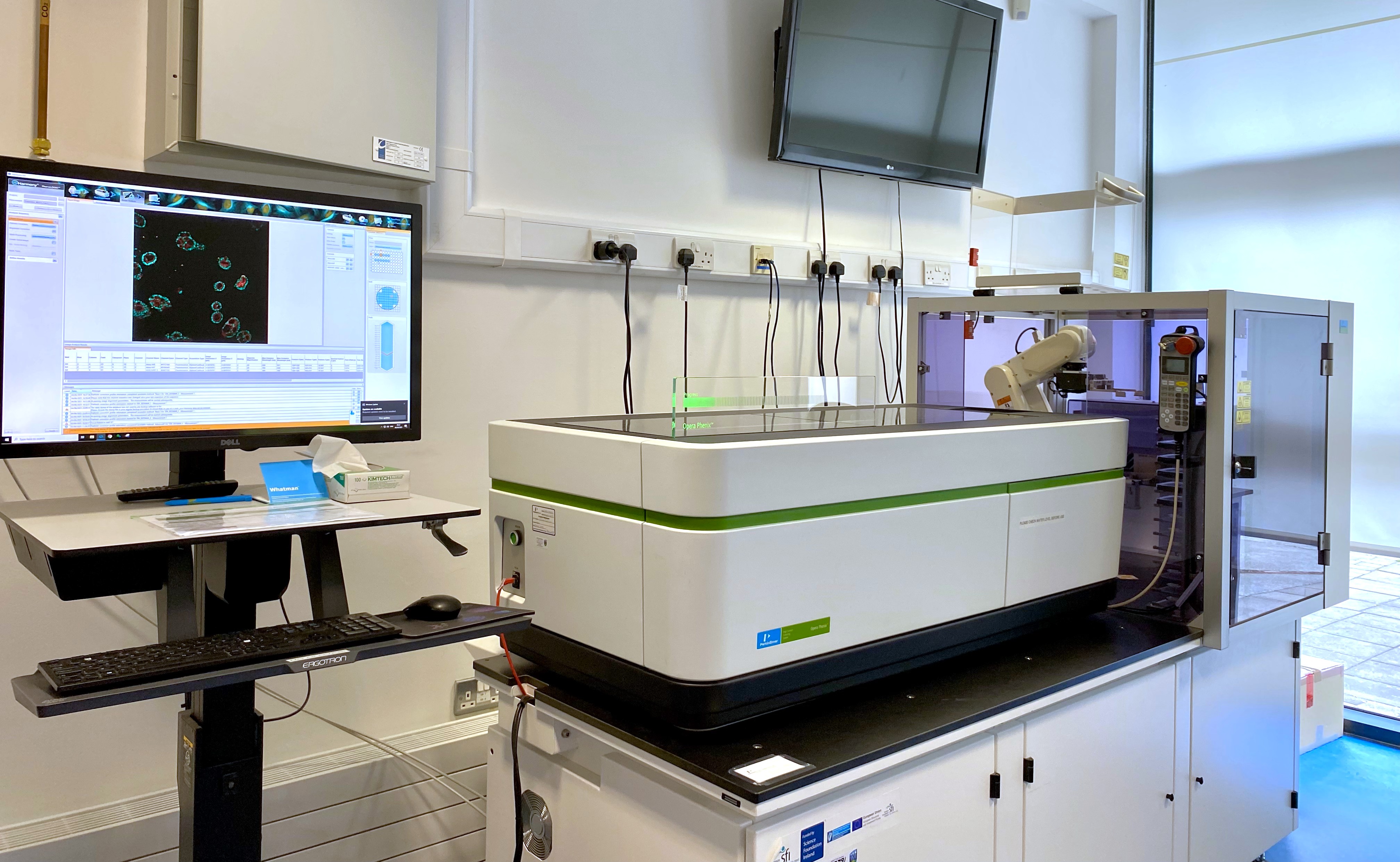
Perkin Elmer Opera Phenix™ Automated Screening Microscope
Advanced fully automated inverted spinning disk confocal microscope for high content screening applications. Four excitation LED laser lines (405, 488, 561 and 640 nm), six objectives (5x to 63x, of which three are air and three are water-immersion), four parallel sCMOS cameras (16 bit, 4.4 mega pixel, 2100 x 2100 resolution, 6.5 µm pixel size). Climate control system (temperature, humidity, CO2) for long-term live imaging. Robotic loading arm for automated plate loading; automation scheduling software. Room temperature 'plate hotel' with 14 positions. Integration with Liconic CO2incubator containing 'plate hotel' with 44 positions. Seamless image transfer to Harmony image analysis platform.
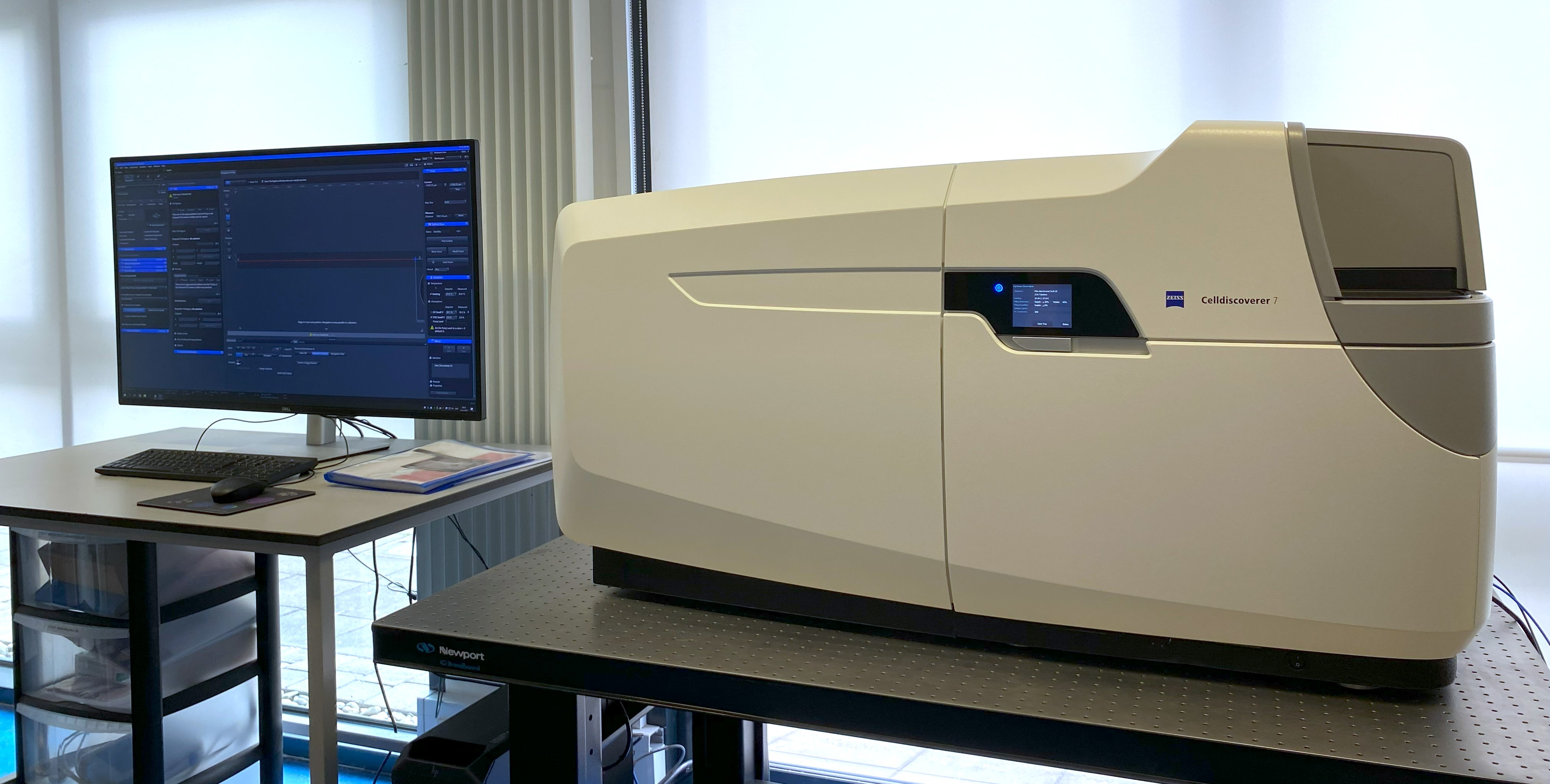
ZEISS Celldiscoverer 7
The Zeiss CD7 is a state-of-the-art fully integrated wide-field imaging system. It is particularly optimised for long-term time-lapse imaging in both fluorescence and phase contrast modes. Excitation is via one of 7 cell-friendly LEDs at 385, 420, 470, 520, 567, 590 and 625nm. Images are captured on an Axiocam 712 monochrome camera featuring a Sony CMOS chip (4096 x 3008 pixels) with a 3.45um x 3.45um pixel size. In live imaging mode the camera can achieve frame rates of 23 fps without binning. The system features a choice of three objective lenses, however the built-in magnification changer allows each objective to offer three different magnifications:
Objective 1 is a 5x / 0.35 NA air objective (offering 2.5x / 0.12 NA, 5x / 0.25 NA, 10x / 0.35 NA).
Objective 2 is a 20x / 0.7 NA air objective (LWD) (offering 10x / 0.35 NA, 20x / 0.7 NA, 40x / 0.7 NA).
Objective 3 is a 50x / 1.2 NA water immersion objective (offering 25x / 1.2 NA, 50x / 1.2 NA, 100x / 1.2 NA).
The system features a full environmental control chamber allowing accurate control of temperature, CO2 and O2 levels. This makes this system suitable for hypoxia work. The stage allows multi-well plates, dishes, chambered slides and slides to be used. A port also enables reagent addition during imaging.
The system is controlled by Zen 3.7 software, with a range of acquisition and analysis features.
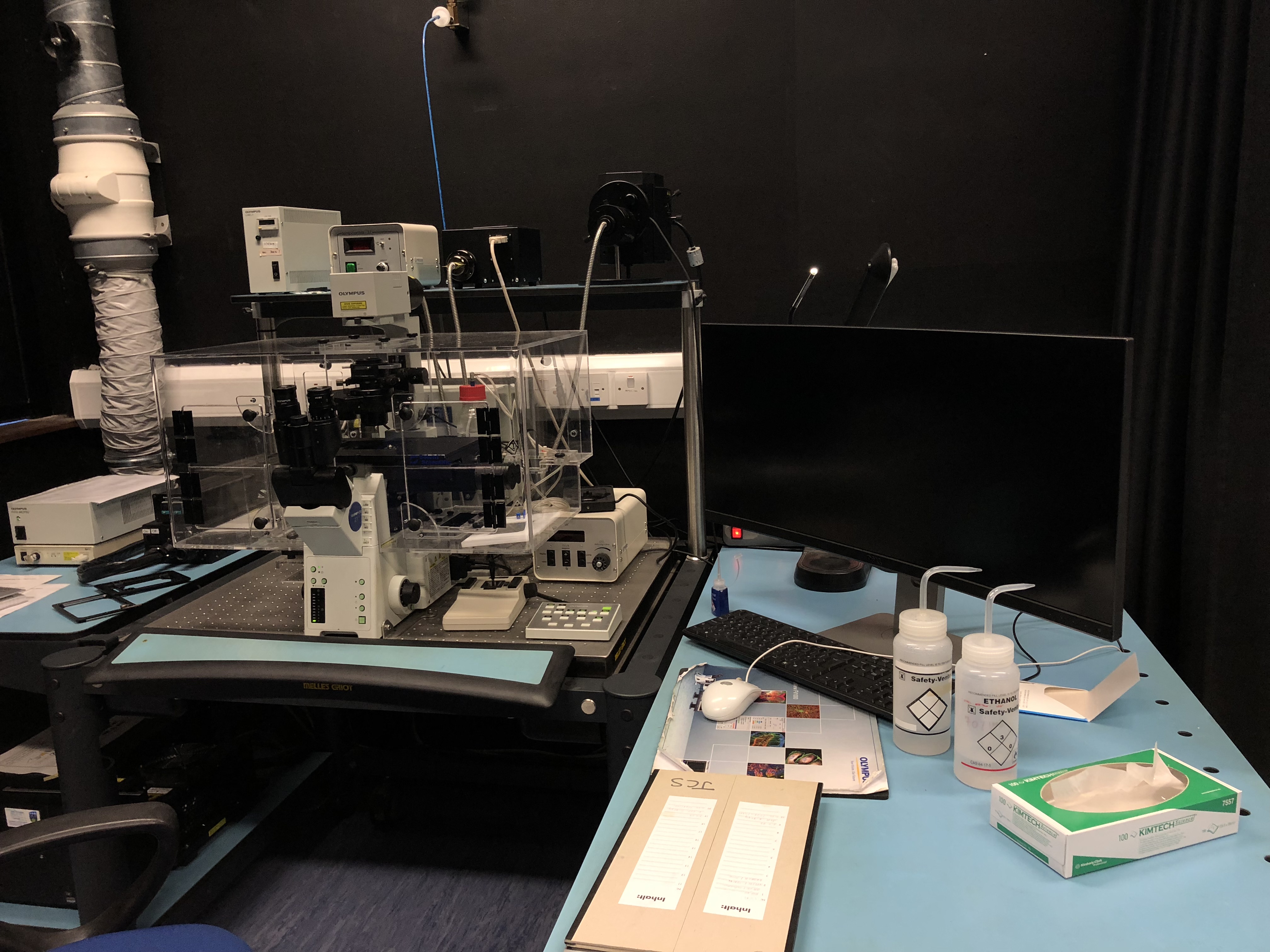
Olympus Fluoview FV1000 Confocal Microscope
Advanced inverted IX81 microscope for confocal imaging. Point scanning confocal images up to 4096 x 4096 resolution. Six lasers (405nm, 445nm, 488nm, 514nm, 559nm, 640nm) and twin scanners allowing simultaneous bleaching and acquisition. Detection on five photomultipliers, two equipped with spectral detection. Climate control system (temperature, humidity, CO2) for long-term live imaging. Powerful visualisation, image analysis and tracking tools using Olympus Fluoview software.
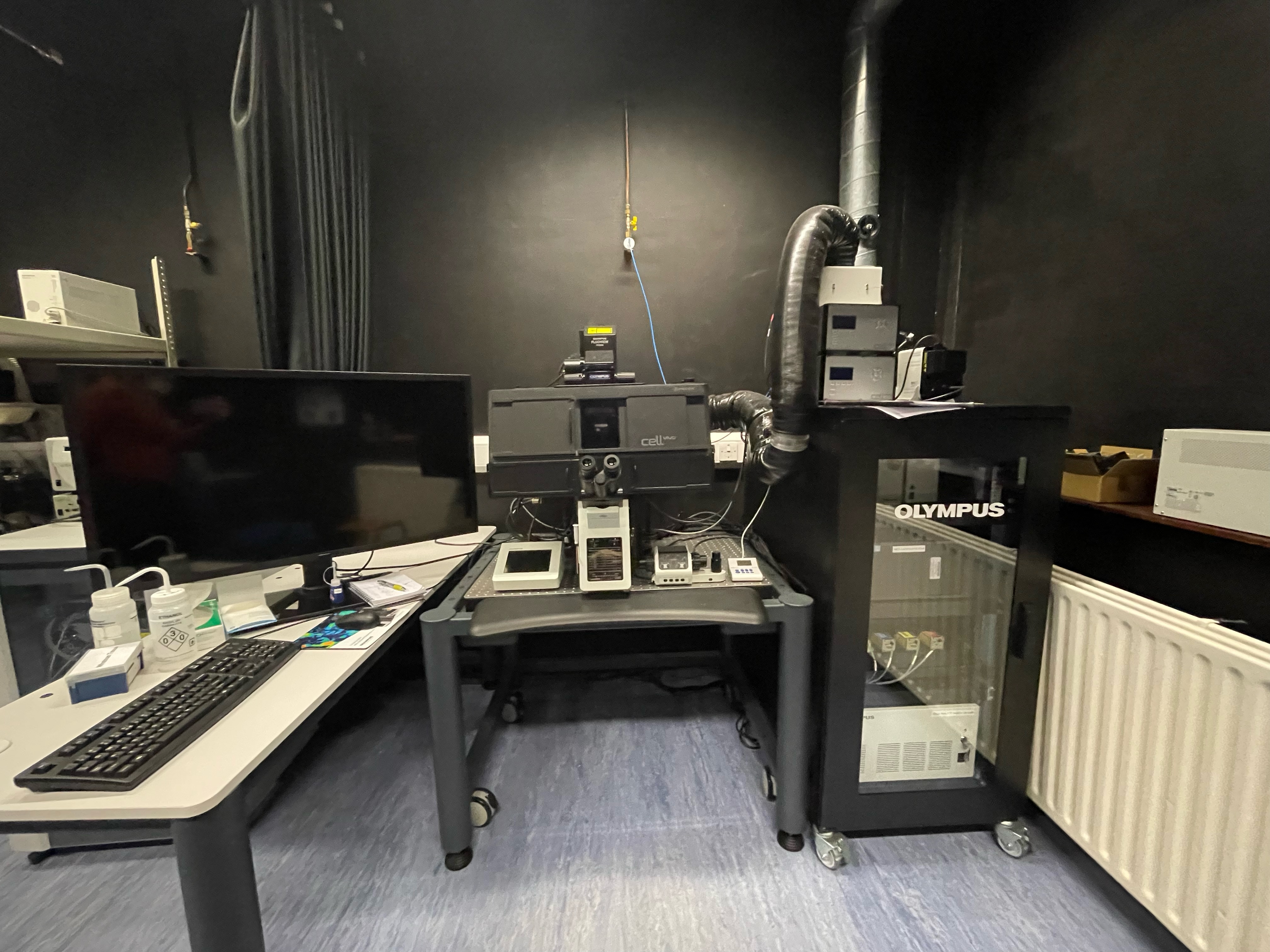
Olympus Fluoview FV3000 Confocal Microscope
Advanced inverted IX83 microscope for confocal imaging. Point scanning confocal images up to 4096 x 4096 resolution. Seven lasers (405nm, 445nm, 488nm, 514nm, 561nm, 594nm, 640nm) and twin scanners (galvo and resonant) allowing rapid image acquisition. Detection on five photomultipliers, four equipped with spectral detection (two standard PMTs and two high-sensitivity GaAsP). ZDC automatic focus correction for long-term imaging. Climate control system (temperature, humidity, CO2) for long-term live imaging. Super-resolution module to 120nm. Powerful visualisation, image analysis and tracking tools using Olympus Fluoview software.
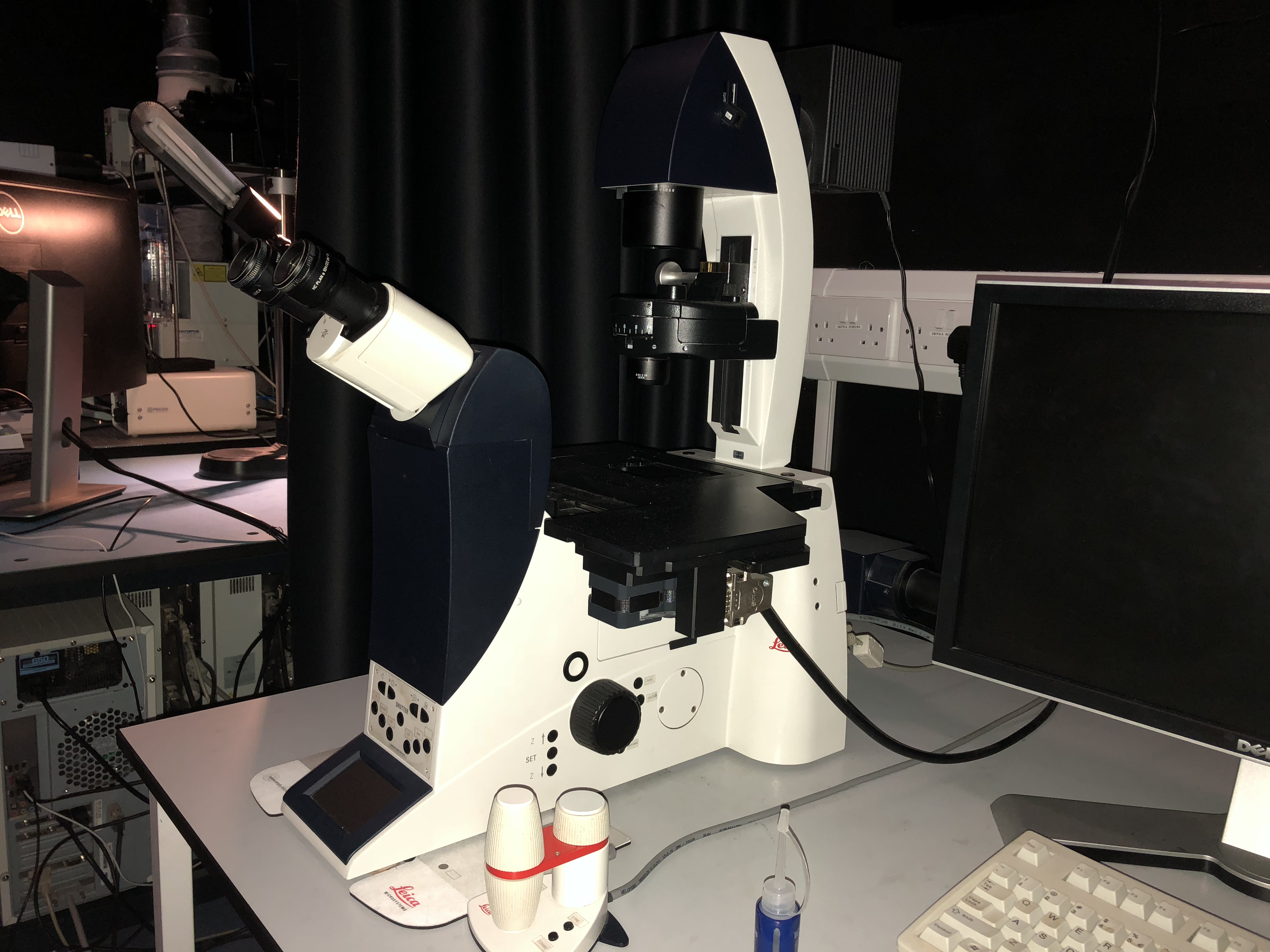
Leica DMI6000B Epifluorescent Microscope
Inverted wide-field microscope for fluorescence cell imaging. Equipped with six filters and six objectives, a scanning stage, and a high-resolution CCD camera for easy and rapid cell imaging.
Olympus Scan^R Automated Screening Microscope
Advanced fully automated inverted wide-field microscope for high content screening applications. Xenon light source for quantitative imaging, rapid excitation filter wheel, fast filter turret, detection on 1344 x 1024 resolution cooled CCD camera. Fully automated objective changing, stage function, autofocus (hardware- and software-based) and acquisition. Climate control system (temperature, humidity, CO2) for long-term live imaging.